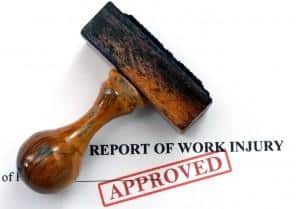
Not a single law school graduate can engage in advocacy and even give advice if he does not get access to the profession (license for the right to engage in advocacy, legal activity). Even staff members of non-legal companies are required to have it. If a corporate lawyer gives advice without a license, he faces a heavy fine and loss of reputation. To gain access to the profession, you must pass an exam and become a member of the bar association. The Association issues licenses and revokes them, develops a code of professional ethics for lawyers, which specifies what a lawyer can be held accountable for.
To become a prosecutor or judge, you need to be a member of this association. The office of a judge is elective. Each judge is elected by the population for 10 years. A candidate for a judge must have a good track record, experience in both the legal profession and the prosecutor’s office. Then he has a chance of being elected.
Since the United States is a confederation, their laws may be different in different states: for example, in one state it is allowed to carry weapons, in another it is prohibited. To represent your client in another state, you need to pass an exam there or involve a lawyer licensed in that state to participate in the process. Otherwise, a lawyer can only be present in court, be a consultant. He cannot appear in court. Our lawyer has the right to defend a client in any city and region.
In the United States, the precedent-based system is used for the most part. In order to win a case in court, lawyers need to find a precedent from the practice of the court of the state in which the case is being considered, and propose to make the same decision. But in Louisiana, like ours, the continental system is used, when protection is built not on precedents, but on the interpretation of laws.
The Justice System is a balance between sides – the defense and the prosecution, and these sides are represented by defense attorney vs prosecutor. Both are important parts of the trial. American attorneys are more concerned with the problem of building relationships with a judge than with a prosecutor. They look at who the case is assigned to in order to figure out what decision the judge can make. The judge behaves quite correctly, explains his position to the jury, and can invite a defense attorney to his office to discuss something. Prosecutors and lawyers try to emotionally influence the jury, since they are ordinary citizens, they need to be impressed (these methods do not affect the judge). The judge may even joke.
If the body is wrong and the defense side has proven this, they calmly refuse to represent the state body, the fiscal service. But since the tax system in the States works like a clock, they rarely argue with the tax authorities, as a rule, large companies do this when they have charged millions in fines.
Criminal lawyers have not complained that they are prohibited from obtaining and presenting their evidence. In civil cases, there are no such problems at all, since they have a mandatory pre-trial exchange of documents, the parties must disclose their evidence, to which they will refer, to opponents. A lawyer can independently interrogate a witness, formalize his testimony and present them in court as written evidence. The court, if it deems it necessary, may summon a witness and question him again. Defense and prosecution arguments Judges listen very carefully. It also happens so, and often when the judge comes into the case with one presentation, and after hearing the arguments changes his point of view.
The companies we worked with have no social focus. They view advocacy as a full-fledged business, and whoever comes to them should pay for this work. Payment is hourly, on average $ 400 per hour. In the United States there is a semblance of social advocacy, these are attorneys by appointment, but they do not work for free, their work is paid not by the state, but by the bar association.
As a rule, a citizen cannot even file a complaintcompetent specialist or initiate a process without a lawyer. It is believed that writing a claim is a specific job, it should be done by a competent specialist, and you should contact him. A citizen, when he writes a statement of claim on his own, can describe his whole life in it, and not indicate legally significant circumstances and references to the rule of law. This prevents the judge from immediately understanding: what right is violated, what kind of protection a person wants to receive. This approach to filing a lawsuit makes the litigation more expensive and forces citizens to seek out-of-court ways to resolve conflicts.
Large companies try to cover all issues. There are firms that specialize in white-collar crime (cases of economic blackmail, elements of corruption, bribery), they do not take up cases involving violence, murder. Civil law firms make good money on real estate. They accompany all sales and purchases. There are companies specializing in tax disputes, intellectual property protection. About 40% of lawyers are engaged in private practice and open their own offices.




